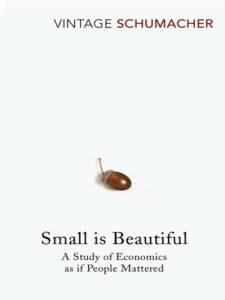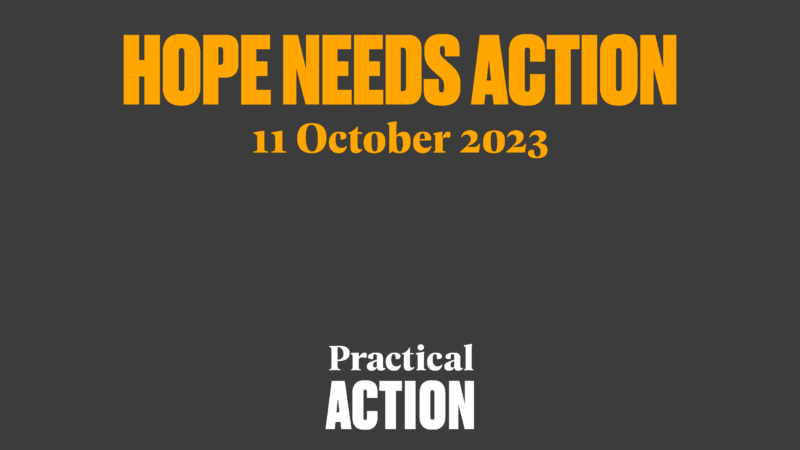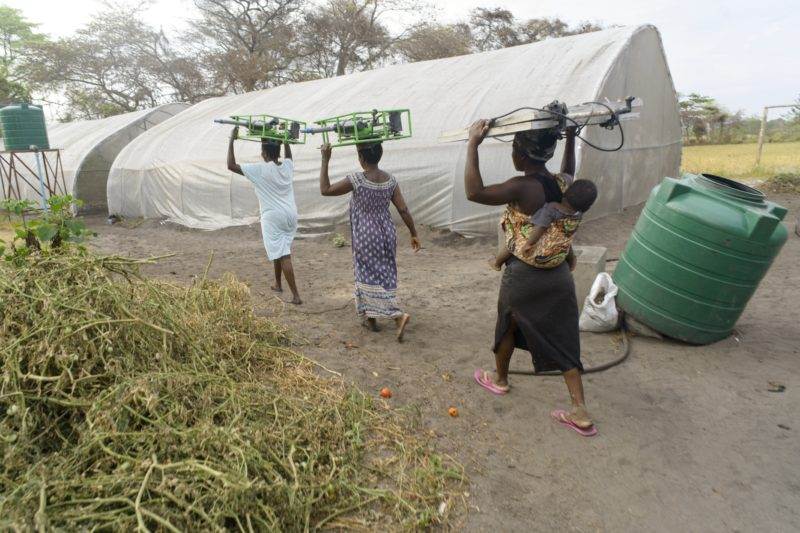
How has Small is Beautiful influenced Practical Action’s approach?
Small is Beautiful encapsulated Schumacher’s views on what constitutes sound, sustainable economic progress. The ITDG took practical steps towards this vision. As well as a radically different approach to supporting people living in poverty, its mission moved towards building local economies that work for everyone, and function within the limits of the planet’s finite resources.
Although the ITDG changed its name to Practical Action in 2005, the ethos of Schumacher’s writing still strongly informs our work today. From our policies to our projects on the ground, we’ve continued to adhere to his guiding principles and pragmatic, holistic approach to tackling the complex issues surrounding poverty.
It is a book that was shaped to enable people in developing countries to move from poverty with confidence that the solutions are made by themselves and are sustainable.
Josiane Uwizeye – Community Mobilization and Inclusion Officer, Practical Action
For over 55 years, we’ve worked closely with people on the frontlines of poverty and climate change to understand their needs and the wider, systemic issues affecting them. Together with communities, we’re developing unexpected, real-world solutions that work for both people and planet. Combining traditional know-how, with cutting-edge technology, to create simple but effective solutions that last. We work to protect lives and livelihoods, so communities can thrive in the face of the climate crisis.
We still put sustainability at the heart of everything we do, implementing simple technologies that only utilise locally available materials, where possible. But we also believe in the power of using new technology to transform lives where appropriate. Solar power is a great example of this, as seen in Rwanda, where we established a local market for solar-powered lighting for refugee camps, and the solar-powered irrigation pumps that have made clean drinking water a reality in Kenya’s arid regions.
The book has retained its relevance. It’s a great advocate for sustainability, and central to many of modern ideas, such as degrowth, circular economics and doughnut economies. For myself, the most poignant aspect is its relevance to the climate emergency.
Colin McQuistan – Head of Climate Resilience, Practical Action



